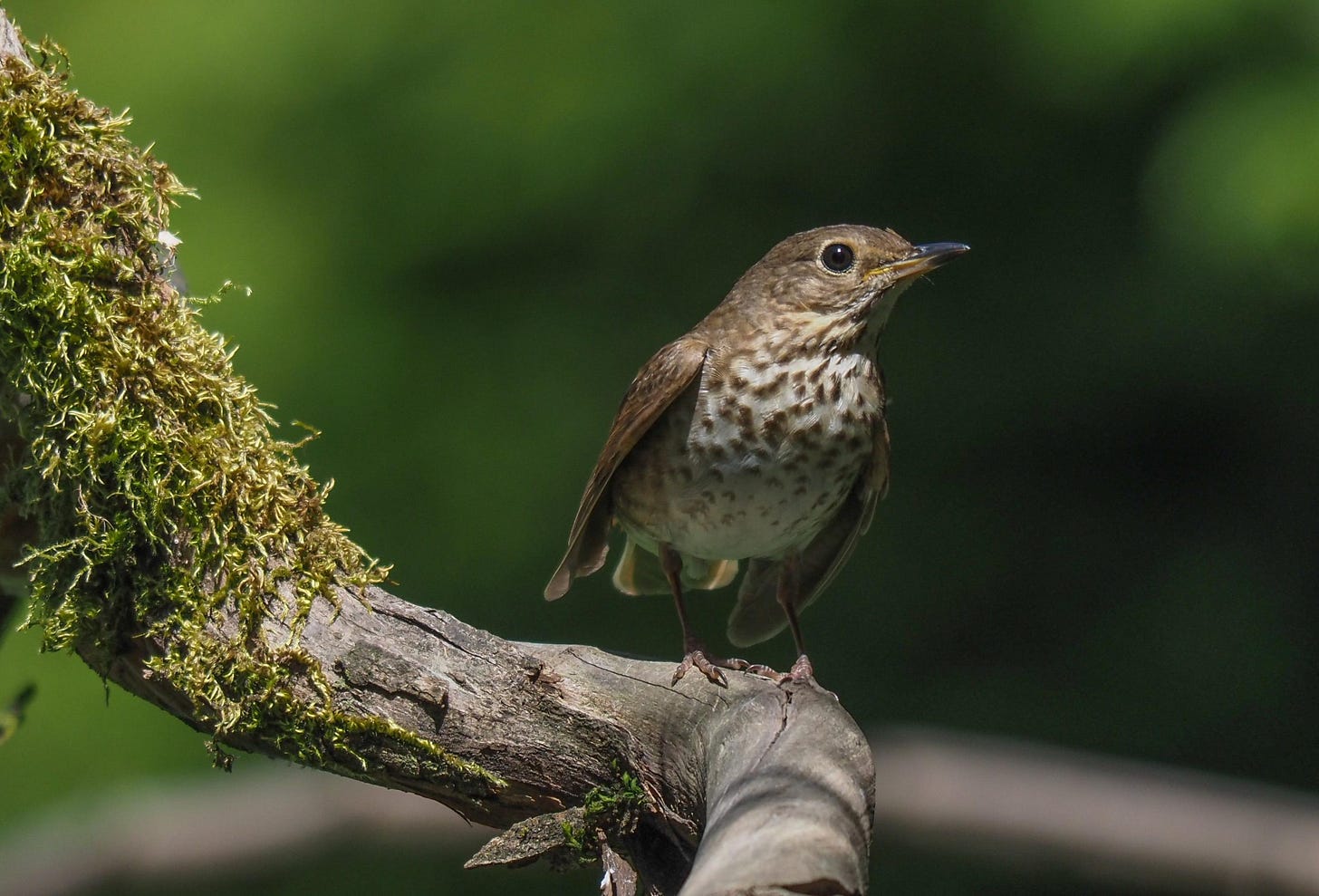Tonight approximately 376 million birds are predicted to migrate across North America.1
If you notice that the land around you has gone quiet and feels lonelier, or by tracking migration through technology like BirdCast, you can help small, nighttime travelers like the wood thrush by turning off all non-essential lighting from sunset until morning.2
I consider this an evening ritual of solidarity; a ritual in memory of their song, with the hope of their safe return.
For the wood thrush, fall migration begins in mid-August and continues through mid-September. They fly hundreds of miles at night, using the moon and stars to help them navigate. Free of daytime thermals, the nighttime atmosphere is more stable for small birds. Plus, daytime predators like owls and hawks are sleeping.
If the wood thrush survives the harrowing migration, they may spend winter in Central America, sometimes wintering on shade-grown coffee farms in Costa Rica amidst a multi-layered tree canopy. They’ll return to forests of the north next spring, journeying almost 2000 miles from Central America, across the Gulf of Mexico to their summer breeding grounds.
I’ll miss them while they’re gone. Already, the forest feels emptier; too silent.
Tonight, as my evening ritual, I will think of the wood thrush and imagine them flying through the dark skies. I will turn off my lights so the small travelers can see where they’re going, and will look forward to spring when they return, filling the forest with their songs.
If you are on their path (or even if you aren’t) will you turn down your lights tonight and join me in wishing them well?
https://birdcast.info/migration-tools/migration-forecast-maps/
Bright lights attract and disorient nocturnally migrating birds who depend on natural light for migration, and can increase incidents of fatal collision.






Thank you for this. I appreciate birds more and more every day. They are at once fragile, strong, resilient, determinied and very beautiful. I hope they all have a safe journey and the ones who winter here sustain themselves throughout the winter.